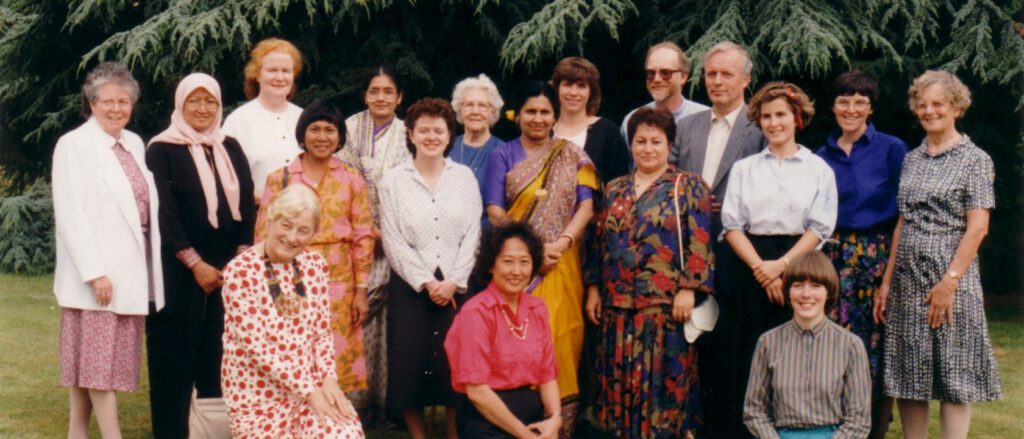
Taken in around 1990.
Recent decades have been marked by secularisation at the expense of open discussion of faith, spirituality and religiosity. Yet, in truth, everyone has a world view, whether or not they chose to label it. The big tech companies have generally tried to ignore the needs of people of faith and many such adherents have felt marginalised. But religion and religiosity are not going to disappear. Then we must take seriously, as has been said many times, that there will be no peace in the world without peace between religions. We need social media, especially social networking sites, to support dialogue, homogeneous and heterogeneous.
I have been immersed in interfaith since birth. My father, Tony, is native to the British Isles, being primarily English, with some Irish blood, enough for him to be a practicing Roman Catholic, whereas my mother, Fuengsin, was from Thailand and a practicing Buddhist. They got married in 1964, when it was still customary for the non-Catholic partner to give way in terms of how children were brought up in faith, though at that time the Vatican was reviewing such marriages.
But Fuengsin, who was for ten years a member of the pioneering Multi-Faith Centre in Birmingham, was not one to deny her training in Dhamma and so I was brought up with exposure to both. In fact, my first formal involvement in interfaith was as a teenaged resource person at the Centre, where I naively declared to an audience that included Catholic nuns that the Bible needed to be rewritten using relevant language. They were bemused.
I became more involved with interfaith activities whilst working at the University of Derby, ostensibly on technical projects, but I also helped with fundraise for and generally promote the Multi-Faith Centre there. I subsequently became Trustee of the International Interfaith Centre in Oxford (2000-2002) and was the Buddhist ‘rep’ on the working group directed by David Paterson, that led to the establishment of the Oxford Council of Faiths.
At the heart of interfaith is listening respectfully, which means giving full attention, being open and sincere. Whilst large gatherings can inspire, I tend to view as more effective small grassroots groups such as those in the Interfaith Encounter Association that meet on an ongoing basis for friendly and informative sharing. This is the kind of ethos which I would like to underpin social media activities.
Tags
This page was published on 9 June 2022 and last updated on August 10, 2022.